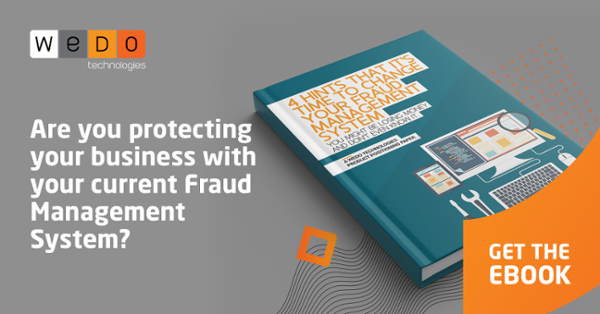The TM Forum recently released the 2019 edition of the TM Forum Fraud Survey, which set up to assess how fraud management (FM) practices are being implemented. Surveying 54 communications service providers from across the globe, the survey aimed to assess the impact of current fraud management processes, understand emerging risks and how CSPs are responding to new challenges related to the digital ecosystem.
Here are a few standout findings:
- Fraud management is still not commonly included in the risk assessment of new products and services.
- Approximately 30% of respondents feel that their FM coverage has not increased; with 35% reporting that they do not have a roadmap to extend coverage in the next year.
- Fraud management processes have not changed in relation to the CSP’s Open Digital Strategy
One of the common themes from the 2019 report is that CSPs are underestimating the risks of the digital ecosystem. This is demonstrated by stats that show approximately 30% of respondents have not increased their FM coverage since 2017, with a slightly higher group of CSPs having no plans to do so. In addition, as CSPs adopt the TM Forum’s Open Digital Strategy, which aims to foster a seamless digital ecosystem, fraud processes are also being left behind. The risks that digital transformation will bring once IoT and 5G services hit the mainstream can be immense, as outlined in our three-part blog series on the fraud risks of 5G. Therefore, it is imperative that CSPs acknowledge that investment in fraud management capabilities and advancing internal processes must be a key priority going forward.
One way that this can be spearheaded is through the adoption of the Fraud Management Maturity Model. The Fraud Management Maturity Model (FMMM) helps organizations better assess the maturity of their processes and assist in developing practices that increase the coverage, efficiency and effectiveness of fighting fraud. Conducting an annual assessment of your organization’s fraud maturity level will enable fraud teams to stay in tune with industry trends and new technologies adopted by your company. In addition, the FMMM helps fraud teams build the business case for investing in additional fraud management resources. More information on the TM Forum’s GB969A Fraud Management Maturity Model can be found here.
To learn more about 5G’s fraud management risks and how you can prepare your business for the digital ecosystem, meet with us at TMF Digital Transformation North America, which is co-located with Action Week. The event is being held from September 24-27 in Dallas, Texas. Click here to book a meeting today.








Give us your comments
Let us know what you thought about this article